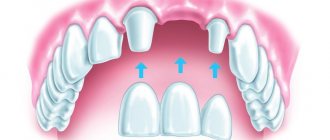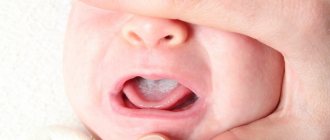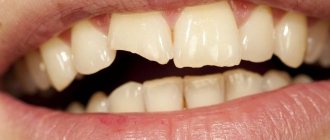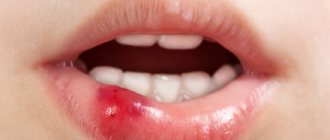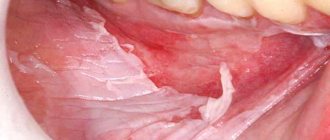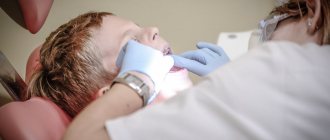In their practice, speech therapists most often encounter relatively mild forms of dysarthria. Otherwise they are called the erased form or dysarthric component. If severe degrees of dysarthria are easy to diagnose, then erased forms of the disorder can only be recognized by an experienced speech therapist or neurologist.
Many children with dysarthria may have been attending speech therapy groups for some time by the time the diagnosis is made, but without any results. Some children were observed by a neurologist in early childhood (1-2 years), but were removed from the register when visible improvements occurred.
Dysarthria is dangerous because it seriously inhibits the child’s speech development, since connections between the speech centers of the cerebral cortex and the articulatory apparatus are lost. The entire pronunciation aspect of speech is disrupted. The child speaks, but since he pronounces all sounds indistinctly, it is difficult to understand him. If correction is not started in time, then at school the child will begin to have serious problems with mastering written speech - dyslexia and dysgraphia.
How to tell if your baby is choking
There are many obvious signs that indicate your child is choking or choking. This process is divided into two stages: light and heavy.
Symptoms of the mild stage:
- the child is conscious;
- cough;
- vomit;
- cry;
- no breathing stops.
If the baby can cry, then his airways are clear. Vomiting often occurs due to intense coughing. Coughing and vomiting will clear the lungs and expel food particles. You should not slap the child on the back too much, because the body has already turned on its defense mechanisms. You can't turn it upside down, it will only hurt. You need to sit next to the child while he clears his throat and calm him down.
If the baby has a severe stage, then he will need serious treatment. Without emergency help, minutes count: a child may suffocate and die.
Signs of a severe stage:
- labored breathing;
- loss of consciousness;
- the child opens his mouth, but cannot make a sound;
- frightened eyes wide open;
- the baby holds his throat with his hands;
- salivation;
- blue skin.
You need to call an ambulance immediately. You should not take any action on your own, especially if the baby choked not on food, but on some hard object. A foreign body from the respiratory tract can only be removed by an experienced, qualified doctor.
Chewing or grinding of teeth in a child
Chewing or smacking in sleep is an uncontrolled contraction of the oral masticatory muscles, accompanied by a sharp clenching of the jaws, grinding of teeth, smacking, excessive salivation, creaking and other symptoms. In medicine, this problem is called “bruxism.”
The period of time during which a person chews can range from a few seconds to 5-10 minutes. Typically, during the entire sleep phase, several episodes of pathology can be noticed. If one episode lasts more than 15 seconds, cracks and chips in the teeth and soft tissue injuries may occur.
Experts have linked a variety of slurping sounds, chewing, and teeth grinding to other sleep disorders. They accompany somnambulism, snoring, urinary incontinence at night, and the occurrence of nightmares. The popular version attributes the symptoms of bruxism to infection with worms. However, in reality, night sounds of teeth and the presence of parasites in the body are in no way connected.
Most often, manifestations of bruxism, when a person periodically swallows saliva, grinds teeth, smacks or chews, are associated with psycho-emotional disorders, for example, depression, stress, mental overload. Excessively active activities before bedtime, overexcitation, growing internal anxiety, and general tension provoke restless sleep.
If the episodes last no more than 10 seconds and occur 1-2 times per night, then this may not indicate any disease, but simply be an individual feature.
This is especially true for young children, who are often subject to reflexes, and chewing at night is a kind of continuation of the sucking instinct or may indicate the child’s hunger.
What not to do
Cases when a child chokes or chokes on food occur quite often. When a baby is teething, he can bite off a fairly large piece of food. If he cries or laughs at this second, he may choke. While exploring the world around them, children put everything into their mouths, and not always edible objects.
The most important thing parents should do is remain calm. The mother's fear is instantly transmitted to the child. If he gets scared, his condition will worsen.
If your baby coughs, it means he doesn’t need help. He can clear his throat on his own. It is enough to be nearby and comfort.
But if an object gets into the respiratory tract, then under no circumstances should you forcefully slap the child on the back if the child is standing or sitting. Because of this, the piece may fall even deeper. You need to lay the baby down so that the head and back are tilted. You cannot remove the item yourself; immediate medical attention is required. It is necessary to provide first aid to the baby using a special method.
Treatment
Smacking in your sleep is not considered a pathology and does not threaten your health. Rather, this problem is not the sleeper himself, but his environment. There are several secrets that will help solve the problem of teeth movement and grinding:
- Try to organize your child’s activities in such a way that he does not experience too strong emotions, including positive ones. Protect him from stress, family quarrels, too active evening games, cartoons and computer games with a scary plot.
- If a child slurps regularly and often (more than 5-7 episodes per night), show him to specialists - a pediatrician, neurologist, somnologist. The cause of night grinding in adolescents may be vegetative-vascular disorders, which are accompanied by headaches and fluctuations in blood pressure.
- It is also necessary to exclude the viral load on the body and check for worms. If, in addition to manifestations of bruxism, the child is pale, inactive, has a disturbance in appetite and bowel movements, basic tests - urine and blood - will be required.
- Sometimes children chew because of an uncomfortable bed, scratchy bedding, stale dry air, or high temperature in the bedroom. Be sure to ventilate before going to bed, adjust the humidity to 50–70%.
- You can come up with evening rituals that will help your baby calm down faster. Swimming, listening to audio books, fairy tales, and some calm games, such as board games, are suitable.
If such symptoms are caused by a pathological condition or some disease, medications are selected only by a doctor. If a pathology is diagnosed, treatment will not be aimed at eliminating grinding or chewing, but at the root cause.
What to do if a newborn or an infant under 1 year is choking
Infants can often choke on their mother's milk. This happens for various reasons:
- Incorrect attachment of the baby to the breast - during feeding, the baby's head should be located above the legs and pelvis.
- Long breaks between feedings - a hungry baby sucks the breast (bottle) too quickly and forcefully. Without having time to swallow, he may choke.
- Too much milk in the breast - the milk flows too quickly, and the baby does not have time to swallow everything. The same thing happens if there is a very large hole in the nipple of the bottle.
It is necessary to learn how to properly attach a baby to the breast. If he chokes while feeding, you need to provide first aid:
- Raise both baby's arms up.
- Extend your hand and place the baby on it. The face should be in the mother's palm. The buttocks should be located above the head.
- You need to work with the lower part of the inside of your palm. It is necessary to gently push the child between the shoulder blades 5 times. Movements must be performed from top to bottom.
- Then turn the baby onto his back so that his buttocks remain above his head. You need to gently press under the ribs 5 times to push the milk out of the lungs.
- Alternate these two methods until the baby breathes on his own.
If a piece of food is stuck in the larynx, you can press your finger on the tip of the tongue to induce vomiting, or lift the baby by the legs, face down.
If the baby loses consciousness or begins to choke, then first aid must be provided until the ambulance arrives. All actions must be performed with force, but not harshly.
An infant whose diet has been introduced to complementary foods must be taught proper table manners (not laughing or talking with his mouth full).
Unpleasant sensation in the throat when swallowing
Unpleasant sensations when swallowing are a symptom that accompanies most ENT diseases. Discomfort in the throat is most often associated with the occurrence of inflammatory processes in the mucous membranes of the respiratory tract. Squeezing, soreness, itching, burning and suffocation can signal the development of sore throat, pharyngitis, laryngitis, mononucleosis, etc.
Only a specialist can accurately determine the type of pathology after the patient has undergone manometry, radiographs and pharyngoscopy examination. When discomfort appears in the throat, many patients develop cancerophobia (fear of detecting a malignant tumor). However, delaying a visit to a specialist can worsen your health and provoke asphyxia.
Why do you experience discomfort in the throat when swallowing? Often, unpleasant sensations when swallowing saliva occur due to psycho-emotional stress. Constant stress, irritation, and depression can lead to overstrain of the muscles located in the lower part of the pharynx. Thus, a so-called “hysterical lump” is formed in the airways, which disappears on its own within a few hours.
Pain and a feeling of a lump in the throat can occur as a result of dysfunction of individual organs and systems, injuries or the development of an infectious disease. Common factors that cause discomfort in the throat include:
If the sensation of a lump in the throat is accompanied by enlargement of regional lymph nodes, hyperthermia and weakness, in 95% of cases this indicates the development of septic inflammation in the respiratory organs.
First aid for a child over 1 year old
Children over 12 months old easily perceive the emotions of others, so they can be scared if their mother is afraid. You need to try to be calm and unperturbed. The baby can clear his throat on his own. If this does not happen, you need to lightly press the tip of your tongue to start vomiting.
If nothing helps, then you need to provide Heimlich first aid. There are two algorithms: for those who are conscious and for those who are unconscious.
If the baby is conscious and can stand or sit:
- Make a fist with your right hand and place your left hand on top of your right.
- Grasp him from behind and place your hands in the space between the navel and the baby's ribs.
- Bend your elbows and push the child into this area several times. These movements must be performed until the baby begins to breathe freely.
If the child is unconscious:
- Lay him on his back and sit on his hips. The baby's head lies flat and straight.
- Place your hands in the area between the ribs and lower abdomen. The right hand is in a fist, the left is on top of it. Both arms are bent.
- Make several quick upward thrusts towards the diaphragm. Continue until breathing is restored.
Henry Heimlich invented a very effective technique that saved many lives.
Excessive salivation in children two years of age and older
If the child is 3 years old and drooling, then in any case it is worth going to the hospital. Only specialists can answer the question of why this happens in a child at this age. They will determine whether drug therapy is needed in this case or whether this moment can be waited out.
When getting rid of these manifestations, it is necessary to compare treatment methods to the pathology itself. However, we cannot remain idle. Children with this problem may develop speech impairment, because a large amount of clear liquid interferes with the ability to pronounce words well. Subsequently, this can lead to delayed development and sociopathy.
At this age, children may begin to erupt molar teeth. This may cause hypersalivation. As is the case with infants, the problem can arise due to ENT diseases, diseases of the digestive system, stomatitis, gingivitis, allergies. If the problem manifests itself mainly at night, then the baby may have a helminthic infestation.
If the problem causing hypersalivation is pathological in nature, then treatment must be carried out to prevent exacerbation.
Folk remedies should be a complement to medication methods. Young children can benefit from rinsing the mouth with decoctions of the following herbs:
Your local pediatrician should choose the weed. You can also use infusions by adding them to a bath with warm water. Tinctures of nettle, black elderberry, calendula, St. John's wort or chamomile are suitable here.
You can rinse your mouth with a decoction of chamomile or nettle. But this method should not be used as the main one. It is more of an adjuvant therapy that complements drug treatment. Rinsing your mouth with herbs will not cope with serious problems.
Also, do not forget that the use of folk remedies must be agreed with the attending physician. Many herbs are highly allergenic and are therefore prohibited for children.
Therapy is carried out in two directions:
If a month-old baby or an older baby is drooling, then medications are prescribed that reduce the functions of the salivary glands.
However, they are prescribed in critical situations, for example, if a newborn chokes at night, which can be fatal.
The solution to the problem itself depends on the cause of its occurrence. In cases of colds and stomatitis, therapy will be prescribed by a pediatrician and dentist.
If you need to get rid of parasites, a course of antiparasitic drugs and preparations with bifidobacteria will help.
At home, to alleviate the condition of the baby, you can do the following:
It must be remembered that strong salivation is a temporary phenomenon, most often associated with the appearance of teeth in the baby and it should be endured. After teething, your child will feel better. However, it is necessary to exclude other factors that caused this trouble. To do this, record your symptoms and report them to your pediatrician.
We offer you to watch a video about one of the most common diseases among children - stomatitis, its causes, symptoms and methods of treatment:
What to do if your child stops breathing
Sometimes stress or spasm of the larynx causes the baby to stop breathing. In this case, urgent assistance is needed.
- Lay him on his side.
- Slightly tilt his head back.
- Lift his chin.
If nothing helps, you need to call an ambulance and give the child artificial respiration:
- The child lies on his back with his head thrown back. The mouth should be slightly open. All foreign objects must be removed from the mouth.
- The parent takes two deep breaths into the child's mouth. If the baby's chest moves, it means he can breathe on his own. If not, resuscitation efforts must be continued.
- After 2 breaths, you need to do an indirect cardiac massage. You need to place your palms so that one is on top of the other. Place your hands on the baby's chest and make several strong pushing movements. The baby's chest should straighten after each blow. In total you need to make 15 clicks.
- If breathing and heartbeat have not returned, resuscitation continues. For 2 breaths there are 15 chest compressions.
These measures must be repeated until the ambulance arrives. The paramedic will take the baby to the hospital, where surgery will be performed to remove the foreign body.
Lump in the throat
Sometimes it is unpleasant for the patient to swallow, but the throat does not hurt. The absence of pain and temperature may indicate hypertrophy of the mucous membranes of the pharynx and chronic diseases. But most often the cause of a lump in the throat is nervous tension.
The occurrence of an unpleasant symptom rarely signals the development of cancer pathologies. In 70% of cases, discomfort goes away without therapy after 4-5 days. But if the sensation of a lump in the throat persists for a week, it is advisable to undergo an examination by an otolaryngologist. The main causes of discomfort include:
The presence of a sour taste in the mouth may signal the penetration of gastric juice into the esophagus. It contains aggressive acids that can damage the mucous membrane of the pharynx and cause pain.

